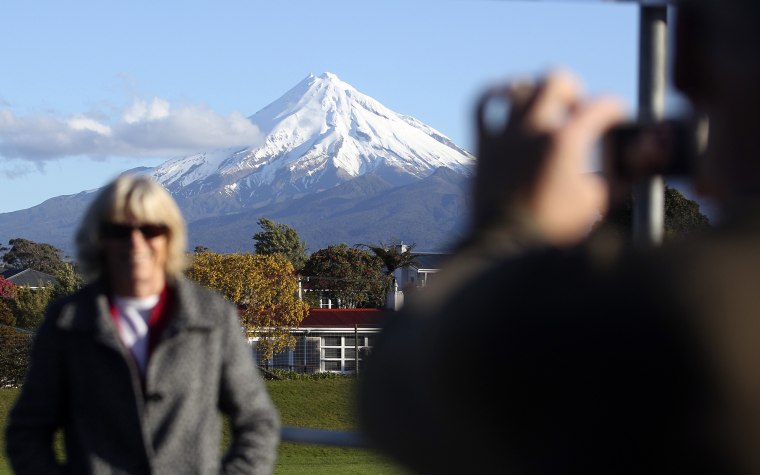
A mountain, a river, and then an asacred forest.
In New Zealand, Mount Taranaki, a massive 8,261-foot stratovolcano that is well-liked by skiers and snowboarders, was acknowledged as a legal person on Thursday.
The mountain, also known by its M ori name Taranaki Maunga, is the most recent natural feature in the nation to confer a person’s rights, powers, obligations, liabilities, and duties.
The indigenous M ori people regard the mountain to be one of their ancestors, but the government has essentially stopped owning it.
Te K hui Tupua is its legal name, and the law regards it as an indivisible, living entity. It encompasses Taranaki as well as the surrounding country and hills, with all of their material and spiritual components.
Government representatives and members of the local M ori iwi, or tribe, will now collaborate to administer it. Additionally, Mount Egmont, the mountain’s colonial name, will no longer be used.
When the North Island’s Te Urewera sacred forest was granted personhood in 2014, and the T Hoe tribe was given guardianship, New Zealand became the first nation in the world to confer living rights to natural objects.
The Whanganui River was then declared human in 2017 and given to the local iwi to look over.
The injustices and land confiscations against the M ori in the Taranaki region are also acknowledged in the Taranaki Maunga Collective Redress Bill, which was enacted on Thursday.
Paul Goldsmith, a government official participating in the negotiations, told Parliament in Aspeechon Thursday that the mountain has long been a revered ancestor, a source of physical, cultural, and spiritual nourishment, and a final resting place.
The bills claim that the colonizers of New Zealand violated a pact the Crown had struck with representatives of the Mori people by first stealing the name and later the mountain itself.
“The Crown failed to create most of the reserves it had promised,” according to the measure. “After further protest by M ori in Taranaki, the Crown eventually returned some reserves, but refused to include most of the mountains in those reserves, instead proclaiming them as a forest reserve, and later a national park.”
Public access will remain, and the mountain’s legal rights are intended to be used for both its preservation and the protection of its species.
“I look forward very much to visiting Taranaki to deliver the Crown apology in the near future,” Goldsmith stated.
